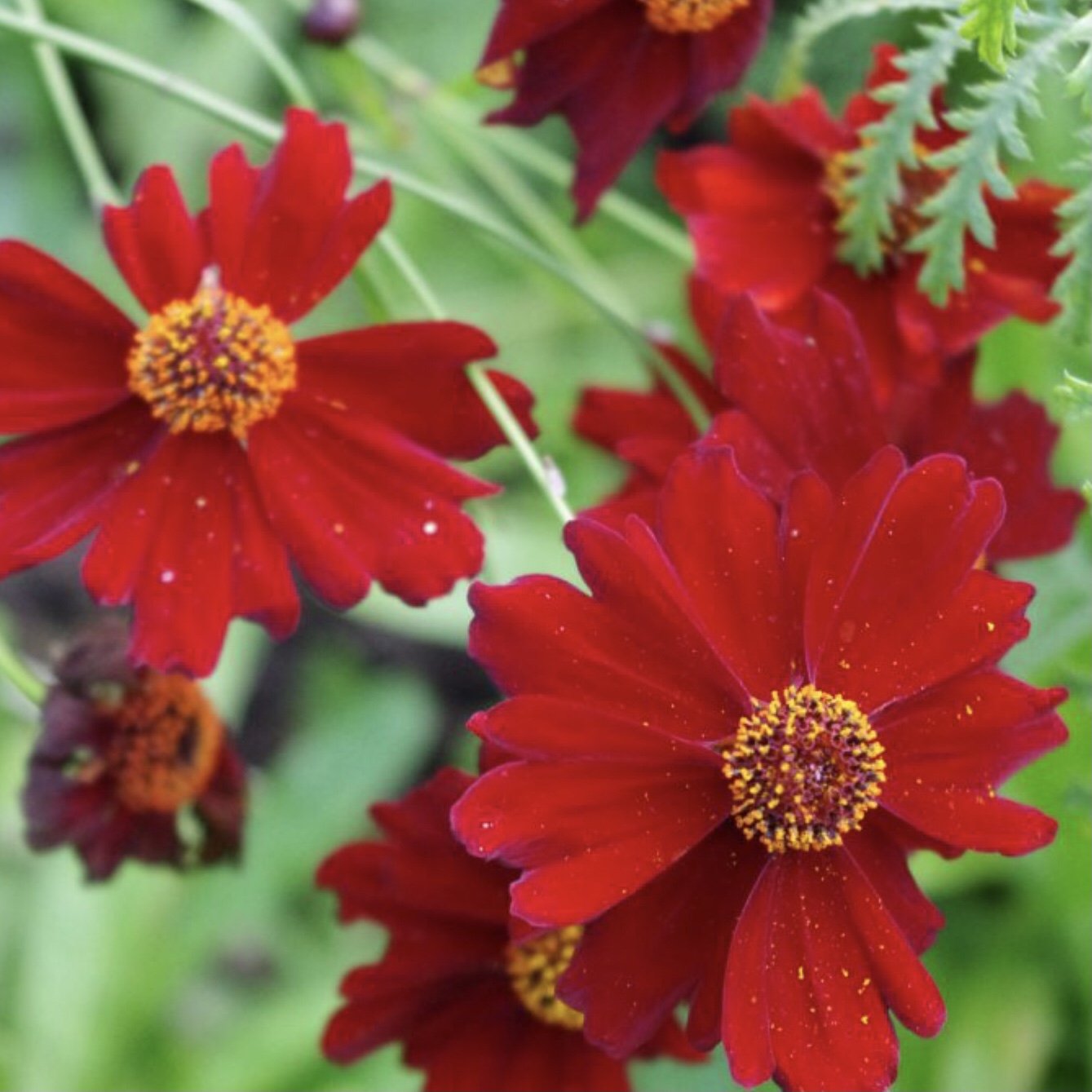Dwarf Red Dyer's Coreopsis
Dwarf Red Dyer's Coreopsis
DWARF RED DYER'S COREOPSIS
Coreopsis tinctoria
In its wild form, this North American annual species is an obtrusively tall and floppy ordeal. This selection is wonderfully compact and very nearly uniformly red, making it ideal for artists seeking the darker end of the wonderful autumnal spectrum of color that common plants produce. In the garden it is blessedly unobtrussive and can bloom all season.
Sow seeds directly into warm garden soil in spring, or start seeds indoors in individual 2" cells or 3" pots. Press seeds into moist soil and just cover with additional soil or fine vermiculite. Mist generously and cover with plastic to maintain moisture. Kept warm (around 70°F) and moist in bright light, seeds begin to germinate in 2-3 weeks. Outdoors, germination is erratic and can take up to a month. Harden off and transplant established seedlings into warm soil in full sun. Water frequently until established and mulch with grass to help retain soil moisture.
Plants in bloom grow to around 2' and will tolerate crowding. Dyer's Coreopsis makes a very nice companion for other species of similar stature. Moisture is key to prolonged bloom. Continual harvest of the flowers will also initiate more flower production. These plants will self-sow where they are happy.
For dye, collect fresh flowers on a sunny morning. Use fresh or lay out on a screen to dry. Making a dye bath with these flowers is simple: soak and simmer. Color is water-soluble and highly affected by pH. Acidic solutions typically produce yellows and basic solutions produce shades of orange and red. The best results are obtained with wool or silk.
The flowers of wild Coreopsis tinctoria are rich in polyphenols and flavanoids, including quercetin, marein and rutin, and are a common herbal “remedy" for diabetes and hypertension. Lakota tribes are known to have made a tea with this species, though whether it was taken for health or pleasure is not known. Extractives are the subject of ongoing study in the treatment of diverse maladies associated with aging. We do not have experience making medicine with this species, but we know of no contraindications. Further research is advised.
Packet contains around 500 seeds.
